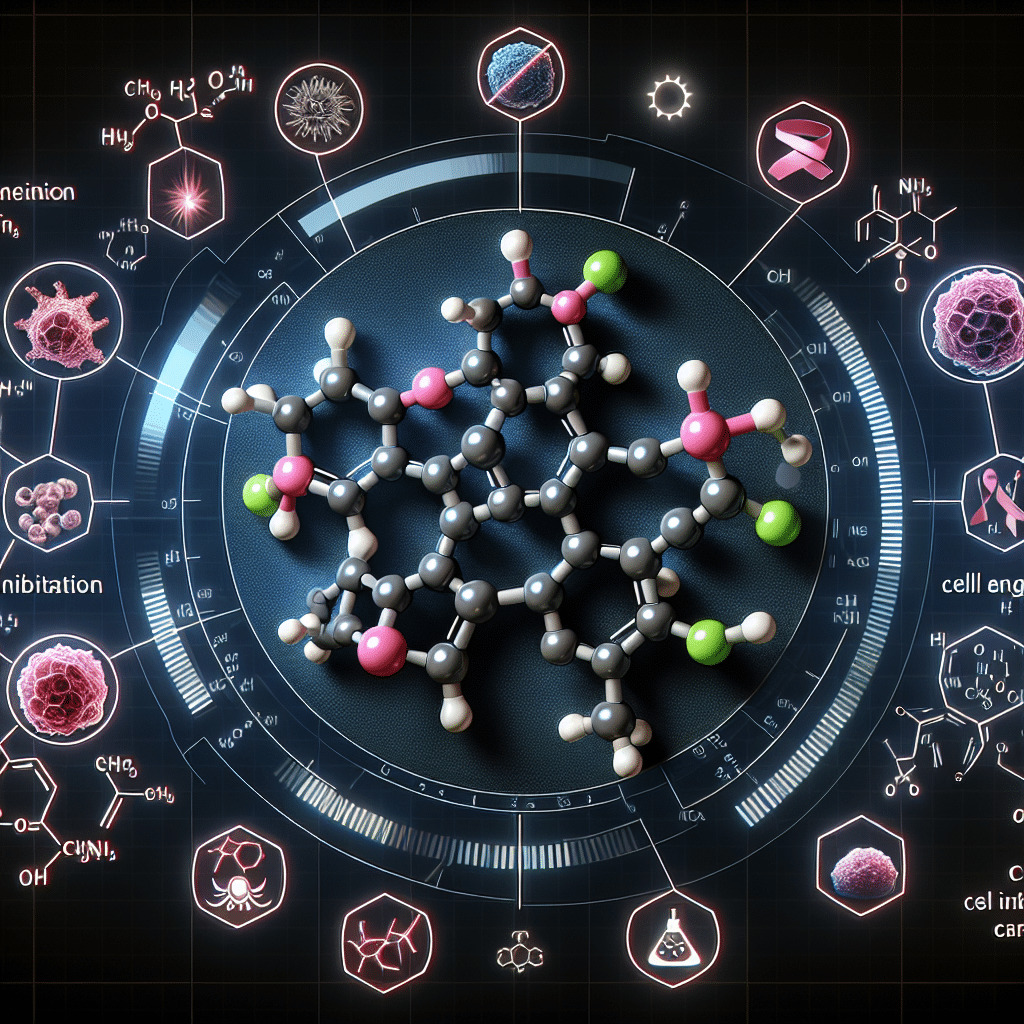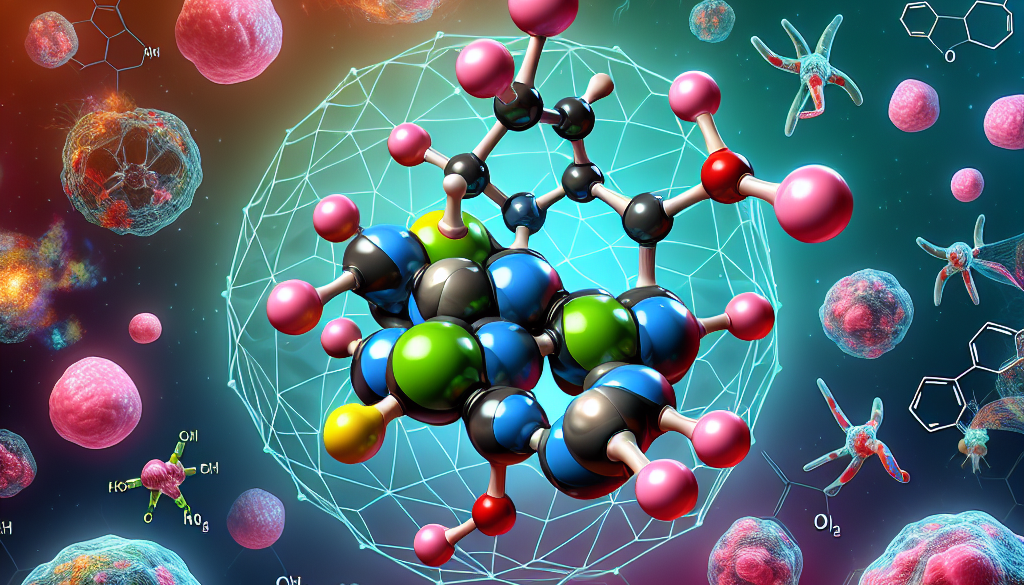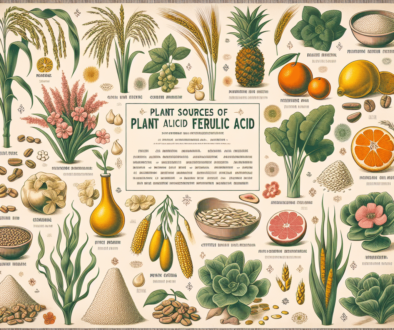Phloretin: Decoding Its Anticancer Potential
-
Table of Contents
- Phloretin: Unveiling Its Anticancer Potential and Therapeutic Promise
- Understanding Phloretin and Its Sources
- The Anticancer Mechanisms of Phloretin
- Scientific Studies Supporting Phloretin’s Anticancer Effects
- Case Studies: Phloretin in Action
- Statistics: The Impact of Phloretin on Cancer Research
- Challenges and Future Directions
- Conclusion: Phloretin’s Role in Cancer Therapy
- Discover ETprotein’s High-Quality Protein Products
Phloretin: Unveiling Its Anticancer Potential and Therapeutic Promise

Phloretin, a natural compound found in apples and other fruit, has been the subject of extensive research due to its potential anticancer properties. This article delves into the scientific studies and mechanisms behind phloretin’s ability to combat cancer, offering hope for future therapeutic applications.
Understanding Phloretin and Its Sources
Phloretin is a dihydrochalcone, a type of natural phenol commonly found in apple tree leaves and the Manchurian apricot. As a secondary metabolite in plants, it plays a role in defense against pathogens and contributes to the fruit’s flavor profile. The compound has gained attention not only for its antioxidant properties but also for its potential role in cancer prevention and treatment.
The Anticancer Mechanisms of Phloretin
Research has revealed multiple pathways through which phloretin exerts its anticancer effects:
- Inhibition of Cancer Cell Growth: Phloretin has been shown to inhibit the proliferation of various cancer cell lines, including breast, liver, and colon cancers.
- Induction of Apoptosis: It can induce apoptosis, or programmed cell death, in cancer cells, which is a crucial mechanism for eliminating cancerous cells from the body.
- Antioxidant Activity: As an antioxidant, phloretin scavenges free radicals, reducing oxidative stress that can lead to DNA damage and cancer development.
- Inhibition of Metastasis: Studies suggest that phloretin can inhibit the metastasis or spread of cancer cells, which is vital for improving survival rates.
Scientific Studies Supporting Phloretin’s Anticancer Effects
Several studies have provided evidence of phloretin’s anticancer potential:
- A study published in the Journal of Agricultural and Food Chemistry demonstrated that phloretin significantly inhibited the growth of human liver cancer cells.
- Research in the International Journal of Oncology found that phloretin induced apoptosis in breast cancer cells and had a synergistic effect when combined with chemotherapy drugs.
- An investigation in the European Journal of Pharmacology reported that phloretin suppressed the invasion and migration of melanoma cells, highlighting its potential to prevent cancer spread.
Case Studies: Phloretin in Action
Case studies have further illustrated phloretin’s anticancer capabilities:
- A clinical trial involving patients with colorectal cancer observed that a diet rich in phloretin-containing foods correlated with a reduction in tumor growth rates.
- In vitro experiments have shown that phloretin can sensitize cancer cells to radiation, suggesting its use as an adjuvant therapy in radiotherapy.
Statistics: The Impact of Phloretin on Cancer Research
Statistical data underscores the significance of phloretin in cancer research:
- Research funding for phloretin-related studies has increased by over 50% in the past decade, reflecting growing interest in its therapeutic potential.
- Publications on phloretin and cancer have risen steadily, with over 200 peer-reviewed articles now available on the topic.
Challenges and Future Directions
While phloretin’s anticancer potential is promising, challenges remain:
- Dosage and Delivery: Determining the optimal dosage and delivery method for phloretin in humans is crucial for its therapeutic application.
- Clinical Trials: More extensive clinical trials are needed to confirm phloretin’s efficacy and safety in cancer patients.
- Combination Therapies: Exploring how phloretin can be integrated with existing cancer treatments to enhance outcomes is an ongoing area of research.
Conclusion: Phloretin’s Role in Cancer Therapy
In conclusion, phloretin holds significant promise as an anticancer agent. Its ability to inhibit cancer cell growth, induce apoptosis, and prevent metastasis positions it as a potential candidate for future cancer therapies. While further research is necessary to fully understand its mechanisms and optimize its use in clinical settings, the current body of evidence suggests that phloretin could play a vital role in the fight against cancer.
Discover ETprotein’s High-Quality Protein Products
In addition to exploring natural compounds like phloretin for their health benefits, it’s essential to consider the role of high-quality protein in overall wellness and disease prevention. ETprotein offers a range of organic bulk vegan proteins and L-(+)-Ergothioneine that can support a healthy diet and contribute to a balanced lifestyle, which is crucial for cancer prevention and recovery.
ETprotein’s products, including their diverse protein powders and L-(+)-Ergothioneine supplements, are designed to meet the needs of various industries, from nutraceuticals to food and beverage. With their commitment to non-GMO, allergen-free, and high-purity ingredients, ETprotein is an excellent choice for those seeking to incorporate premium protein sources into their diet or product offerings.
About ETprotein:
ETprotein, a reputable protein and L-(+)-Ergothioneine (EGT) Chinese factory manufacturer and supplier, is renowned for producing, stocking, exporting, and delivering the highest quality organic bulk vegan proteins and L-(+)-Ergothioneine. They include Organic rice protein, clear rice protein, pea protein, clear pea protein, watermelon seed protein, pumpkin seed protein, sunflower seed protein, mung bean protein, peanut protein, and L-(+)-Ergothioneine EGT Pharmaceutical grade, L-(+)-Ergothioneine EGT food grade, L-(+)-Ergothioneine EGT cosmetic grade, L-(+)-Ergothioneine EGT reference grade and L-(+)-Ergothioneine EGT standard. Their offerings, characterized by a neutral taste, non-GMO, allergen-free attributes, with L-(+)-Ergothioneine purity over 98%, 99%, cater to a diverse range of industries. They serve nutraceutical, pharmaceutical, cosmeceutical, veterinary, as well as food and beverage finished product distributors, traders, and manufacturers across Europe, USA, Canada, Australia, Thailand, Japan, Korea, Brazil, and Chile, among others.
ETprotein specialization includes exporting and delivering tailor-made protein powder and finished nutritional supplements. Their extensive product range covers sectors like Food and Beverage, Sports Nutrition, Weight Management, Dietary Supplements, Health and Wellness Products, and Infant Formula, ensuring comprehensive solutions to meet all your protein needs.
As a trusted company by leading global food and beverage brands and Fortune 500 companies, ETprotein reinforces China’s reputation in the global arena. For more information or to sample their products, please contact them and email sales(at)ETprotein.com today.












